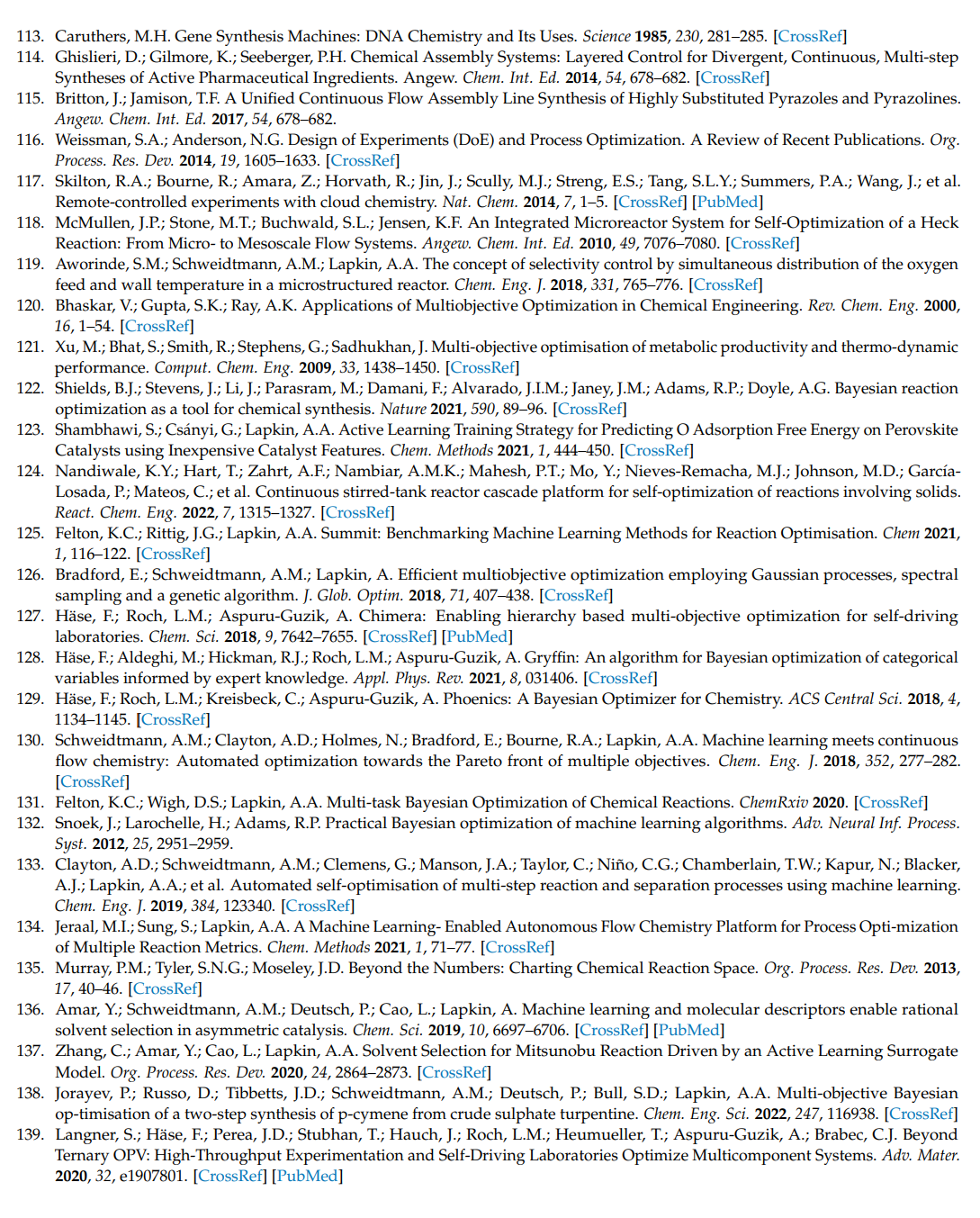The physical experiment must be done by machinery controlled by the model. ie I type "make sulphuric acid" and it does. But much more complex than that. Actual, long experiments which you'd have multiple chemists spending more than a week on.
People are also trading
@NathanpmYoung so the NN needs to figure out a plausible synthesis procedure and execute it using available machinery? That seems possible right now, the first step:
https://www.sciencedirect.com/science/article/abs/pii/S2211339821000812
and the second step does nor require any neural network stuff, just automatable tooling which I'm pretty sure exists off the shelf
@NathanpmYoung automated machinery? Yes: https://www.science.org/doi/10.1126/science.aav2211
Automated procedure generation? Also yes: https://www.mdpi.com/2227-9717/11/2/330
Combining the two? Sounds a bit blow-up-the-lab-y but it certainly would be possible, I'll look a bit more for if somebody has done it
@NathanpmYoung found it: https://www.science.org/doi/10.1126/science.aax1566
And a lot more in citations for https://www.mdpi.com/2227-9717/11/2/330 starting around 90
@CodeandSolder how about "any end to end significant experiment that a human can currently do"
@NathanpmYoung that would:
a) be a significant change to the question
b) change the question to "will good humanoid robots become available by 2040 or will somebody create automated setups for all feasible chemical procedures"
c) still be unclear
d) still probably should resolve YES right now, I can't think of anything that could not be done using the approaches in sources cited with enough determination and resources
@CodeandSolder Not sure it would be a sigifnicant change. The question is trying to predict something by 2040. It isn't asking "do chemistry machines exist".
I mean b) doesn't necessarily seem bad.
The question is meant to be something like "will they be able to do chemistry such as you'd pay a chemist to do
@CodeandSolder Asking someone you don't know on the internet to read through multiple complex sources seems like a big ask to me.
@NathanpmYoung Speaking as a chemist, a significant fraction of the "chemistry they pay chemists to do" is already a matter of managing automated tools executing well-understood exploration patterns, with a side helping of big data analysis. I'm talking mostly about the pharma/biotech type guys here; I work in physical chemistry, but as a computational chemist, so there's some of that here too though it's not my work.
So uh, for what you're describing, neural nets aren't really needed. And while there are some lab-on-a-chip type setups that allow an algorithm-led machine direct physical access to manage an experiment, it's mostly not done simply because the hands are cheap enough to hire and don't require a large capital investment to be able to do new techniques.
I guess I'm not really clear on exactly what you think AI would be bringing here that it isn't already, other than some of those fanciful superintelligence-does-molecular-manufacturing scenarios.
@AndrewHartman @NathanpmYoung Maybe thinking of this in a more end-to-end manner (like @CodeandSolder suggested) would help solve this? Like ask model that is hooked up to microfluidics, etc. to do any experiment and it successfully completes all the requisite steps including some heuristics and tests that chemists use regarding how to optimize the experiment, essentially only requiring the chemists to prompt the model and collect the result.

